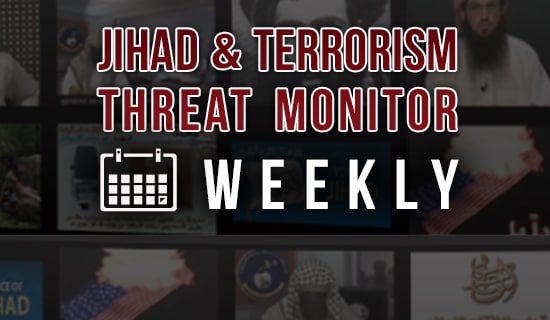Secretary-General of the Al-Nujaba militia in Iraq, Sheikh Akram Al-Kaabi, was interviewed on the organization's TV network, Al-Nujaba TV, on January 1, 2019. Al-Kaabi said that the IRGC and Lebanese Hizbullah helped the militant Shi'ite forces that were fighting the U.S. forces as early as 2004. He recounted the details of the 2004 battle of Najaf between U.S. and Iraqi forces and the militant Mahdi Army, in which 13 American servicemen were killed and over 100 were wounded. He said that IRGC and Hizbullah officers were present on the ground and helped the Mahdi Army in the battle. Al-Kaabi added that when the battle of Najaf was over, he traveled to Lebanon and met Hassan Nasrallah and Imad Mughniyah, who debriefed him about the battle. According to Al-Kaabi, Nasrallah and Mughniyah put all their capabilities and expertise at his disposal. He went on to describe how the Al-Nujaba militia began using explosively formed penetrators in the IEDs that they employed against American M1 Abrams tanks in Iraq.
To view the clip of Akram Al-Kaabi on MEMRI TV, click here or below.
"The Brothers From Hizbullah And From The IRGC Helped Us In That Battle In Najaf – Even In Sadr City, There Were Iranian Consultants"
Secretary-General Sheikh Akram Al-Kaabi: "Today, we are fighting a policy – the policy of the U.S. and British regimes, or the entire Zionist occupation. The Zionists constitute an army for which a state was created and for which they want to create a people. All the forces and all the Israelis on the land of Palestine are occupiers – even the newborn babies. There are no exceptions. They constitute an army brought over by the British occupiers, who created this cancerous tumor and planted it in the region.
[...]
"The damage caused to the Americans [in Iraq] was great."
Interviewer: "Have you gathered statistics or anything?"
Secretary-General Sheikh Akram Al-Kaabi: "There were intense exchanges of fire and we would target them with IEDs, but due to the armor on their vehicles – the M1 Abrams tanks and other vehicles – the impact was light. But when the Abrams tanks faced five of our mujahideen in the Najaf cemetery [in 2004]... Despite all the modern armor and technology, the drivers and the tank crews could not muster the courage to advance. They would turn around and flee with their tanks."
Interviewer: "Because of our fighting spirit..."
Secretary-General Sheikh Akram Al-Kaabi: "And its lack thereof on the other side. This was evident, because it was a small area. You could climb the minaret of Emir Al-Mumineen Mosque and from there you could see the movement of the forces and the tanks, because it was an elevated spot. It was surprising to see a tank being defeated by five of our men shooting at it with PK machine guns. It was clear that the morale on the other side was crushed. After all that, we realized that we needed a new method, especially since the brothers from Hizbullah and from the IRGC helped us in that battle in Najaf. Even in Sadr City, there were Iranian consultants. There was an IRGC officer called Abu Ali, who was originally from Ahwaz and spoke fluent Arabic. He was with us in Najaf, and he helped us with the battle management and provided much-needed basic and important advice.
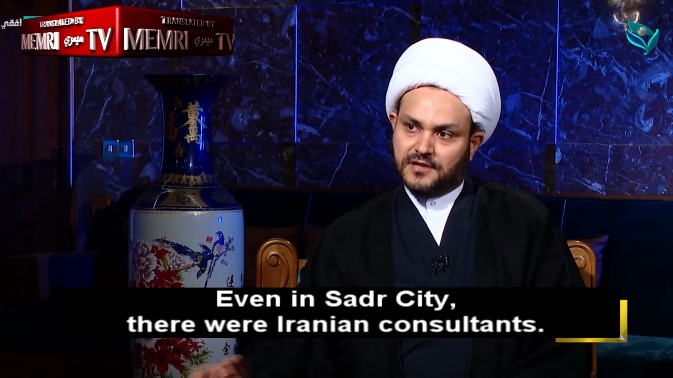
"We realized that if we use these capabilities and expertise in a more extensive way, we will have better results. One brother, called Abu Turab, was known to all the brothers in the Mahdi Army. He was with us in Baghdad also.
"This brother from Hizbullah specialized in engineering and had a lot of expertise in matters of combat. He trained many of our brothers.
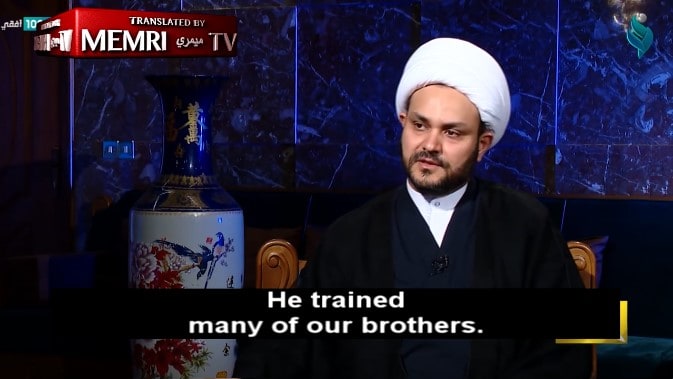
SUPPORT OUR WORK

"Our chief engineer in Najaf, Dr. Jassem Al-Abadi, who was martyred, was among the first to be trained by that brother from Hizbullah and by the brothers from the IRGC. So we realized that if we acquired more capabilities, things would improve. Our morale was high. Our mujahideen were ready to make sacrifices. So we decided to take this path and acquire a lot of expertise. So we developed our relationship with the brothers in Hizbullah and the IRGC. Both Hizbullah and the IRGC were open with us about everything..."
"We Started Using Explosively Formed Penetrators... They Would Explode Inside The Tank, Destroying It And Killing Everyone Inside"
Interviewer: "Is this were your relations with Hizbullah's secretary-general started?"
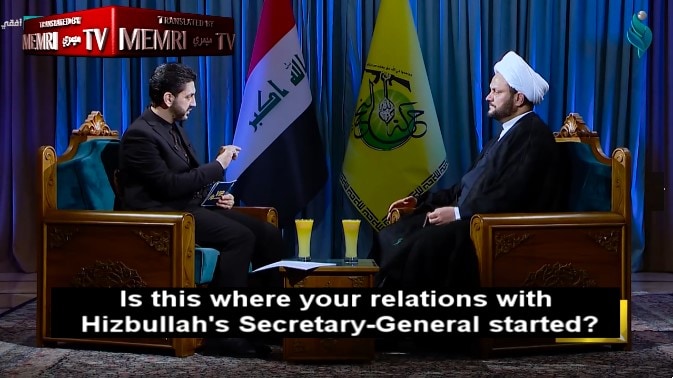
Secretary-General Sheikh Akram Al-Kaabi: "Yes. After the battle of Najaf, I traveled by land to Syria and then to Lebanon, and I met Hassan Nasrallah for the first time. The brothers [in Hizbullah] did not keep any secrets from us. They were forthcoming with their years of experience. They summarized this experience and presented it to us in full detail and this, indeed, led to a significant change in our resistance on the ground.
[...]
"The late Imad Mughniyah participated in my meeting [with Nasrallah]. Nasrallah and Mughniyah asked me to debrief them about the battle of Najaf – the events, and the deployment of the forces and the vehicles. Mughniyah even asked me to present everything on a blackboard so that they would get a feel for what had happened on the ground. So I reviewed all the details. Nasrallah was... Obviously, all this happened in the second meeting. The first meeting was an official introductory meeting. Then, since I was still in Lebanon, the second meeting was held. Both Nasrallah and Mughniyah sympathized with us. Both said that they had tried to contact us many times prior to the events in Najaf, and that had they succeeded we would have been able to accomplish greater victories, and to change the balance of power significantly. But they said that this was the will of the Lord and that Hizbullah will not deny us anything. They said: 'All of our capabilities and expertise are at your disposal.'
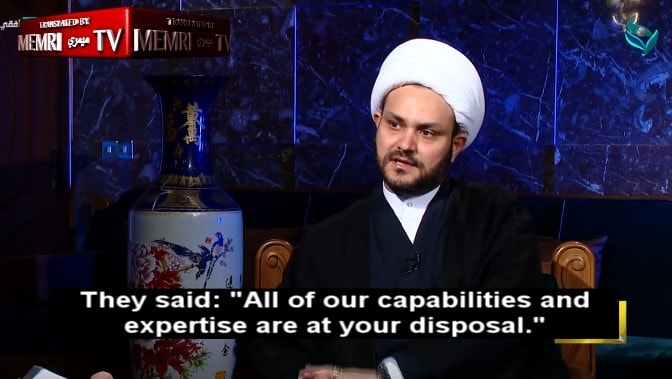
[...]
"At first, we used old anti-aircraft missiles to manufacture IEDs. They would cause a large explosion, with a loud noise and lots of smoke, but they had little effect on the heavily-armored [American] vehicles. Penetrating this armor was no easy task.
"But later, our IEDs improved. We started using explosively formed penetrators. These charges would not cause a lot of smoke or a loud explosion, but they would penetrate the armor of the tanks through a certain hole. They would explode inside the tank, destroying it and killing everyone inside."
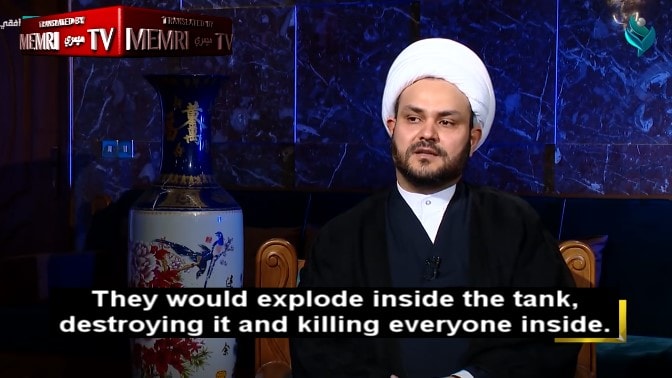
Hizbullah And The IRGC "Provided Great Expertise During The Resistance To The American Occupation And Through The ISIS Occupation"
Interviewer: "So you defeated the American war machine."
Secretary-General Sheikh Akram Al-Kaabi: "Yes. This caused great fear for..."
Interviewer: "America..."

Secretary-General Sheikh Akram Al-Kaabi: "It caused great fear among the Abrams tank crews because even the armor of their tanks could not protect them anymore.
[...]
"[Hizbullah and the IRGC] provided great expertise during the resistance to the American occupation and through the ISIS occupation. During the ISIS occupation, the presence of these brothers became official.
[...]
"The new American ambassador reportedly coming to Iraq [Matthew Tueller] used to serve as the ambassador to Yemen. He specializes in assassinations and in sparking sectarian and tribal wars. Because he did not succeed in Yemen..."
Interviewer: "He is coming to try his luck in Iraq..."
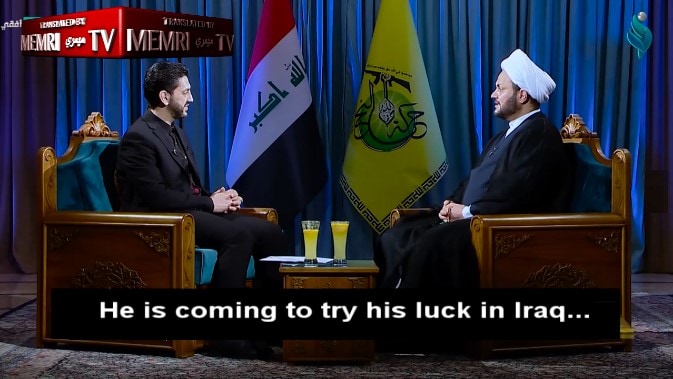
Secretary-General Sheikh Akram Al-Kaabi: "He failed in Yemen for many reasons, and he will fail in Iraq as well."




